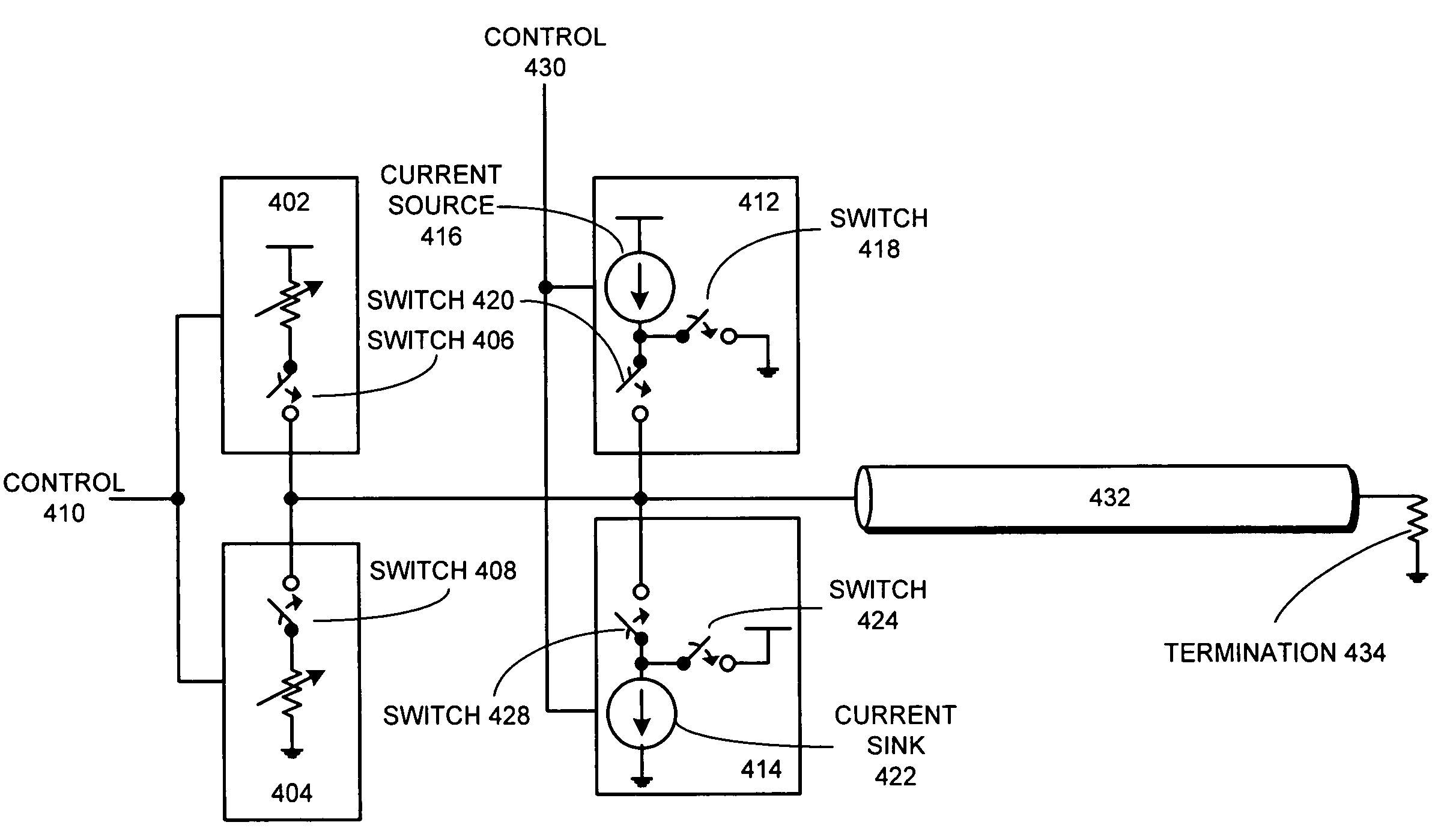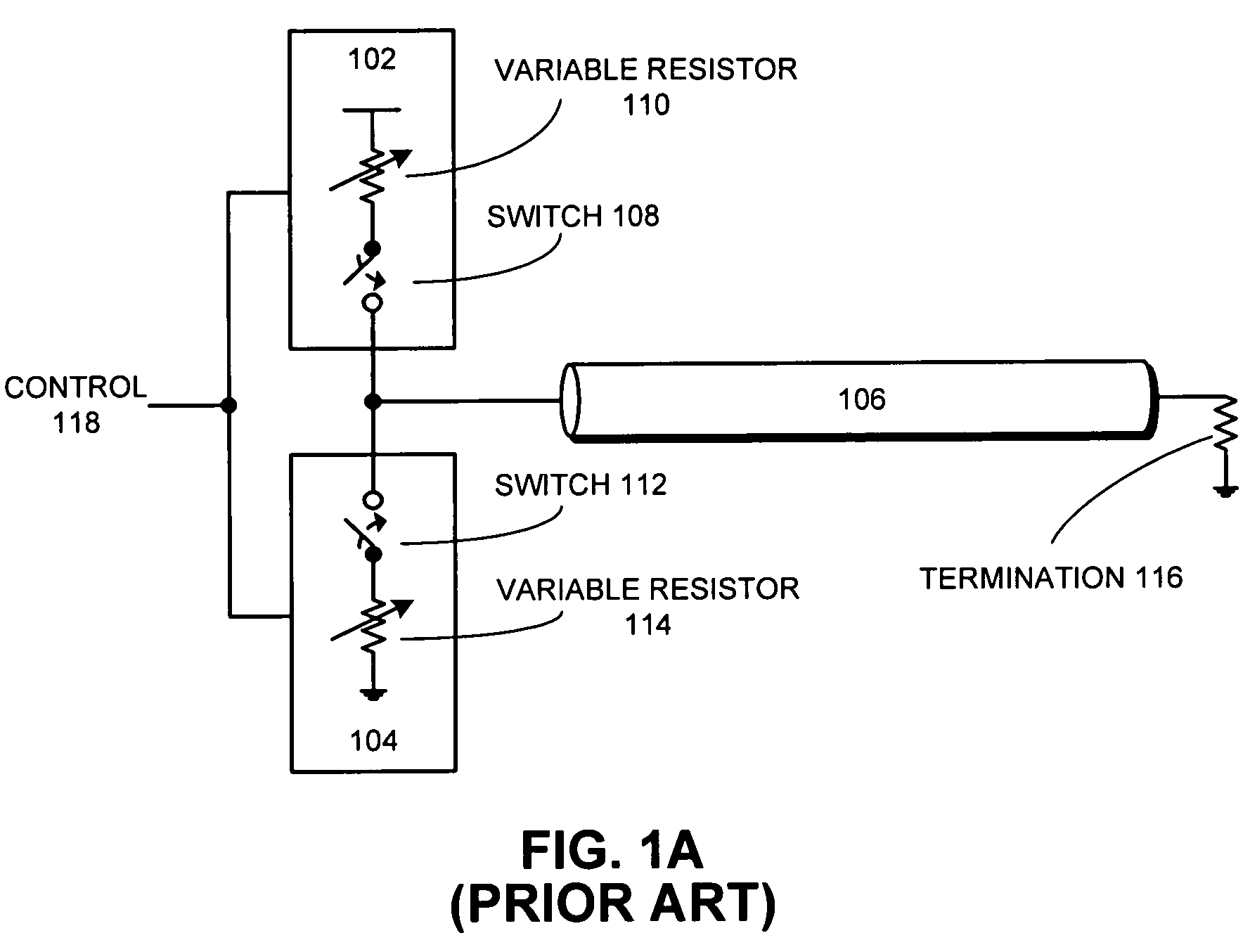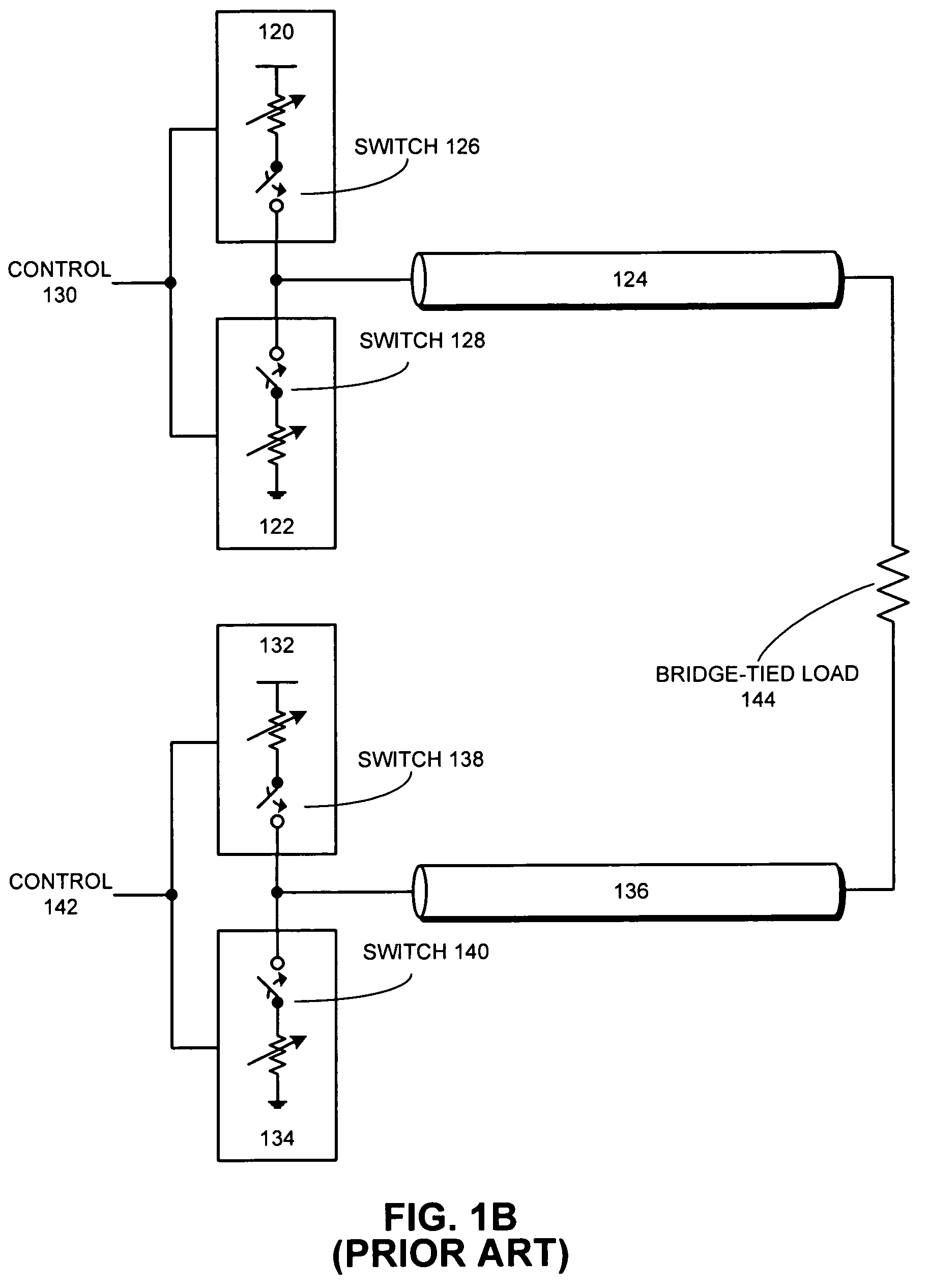Hybrid voltage/current-mode transmission line driver
a transmission line and current-mode technology, applied in the direction of digital transmission, line-transmission details, duplex signal operation, etc., can solve the problems of data loss, impedance mismatch with characteristic impedance, and communication channels used to transfer data between system components is rapidly becoming a bottleneck, so as to compensate frequency-dependent losses, sacrificing impedance matching, and avoiding significant power consumption
- Summary
- Abstract
- Description
- Claims
- Application Information
AI Technical Summary
Benefits of technology
Problems solved by technology
Method used
Image
Examples
Embodiment Construction
[0026]The following description is presented to enable any person skilled in the art to make and use the invention, and is provided in the context of a particular application and its requirements. Various modifications to the disclosed embodiments will be readily apparent to those skilled in the art, and the general principles defined herein may be applied to other embodiments and applications without departing from the spirit and scope of the present invention. Thus, the present invention is not limited to the embodiments shown, but is to be accorded the widest scope consistent with the principles and features disclosed herein.
Voltage-Mode Drivers
[0027]FIG. 1A presents a block diagram of a voltage-mode driver. It contains pull-up network 102, pull-down network 104, communication channel 106, switches 108 and 112, variable resistors 110 and 114, termination 116, and control signal 118.
[0028]When the voltage-mode driver transmits a high bit, control signal 118 closes switch 108 and c...
PUM
 Login to View More
Login to View More Abstract
Description
Claims
Application Information
 Login to View More
Login to View More - R&D
- Intellectual Property
- Life Sciences
- Materials
- Tech Scout
- Unparalleled Data Quality
- Higher Quality Content
- 60% Fewer Hallucinations
Browse by: Latest US Patents, China's latest patents, Technical Efficacy Thesaurus, Application Domain, Technology Topic, Popular Technical Reports.
© 2025 PatSnap. All rights reserved.Legal|Privacy policy|Modern Slavery Act Transparency Statement|Sitemap|About US| Contact US: help@patsnap.com



